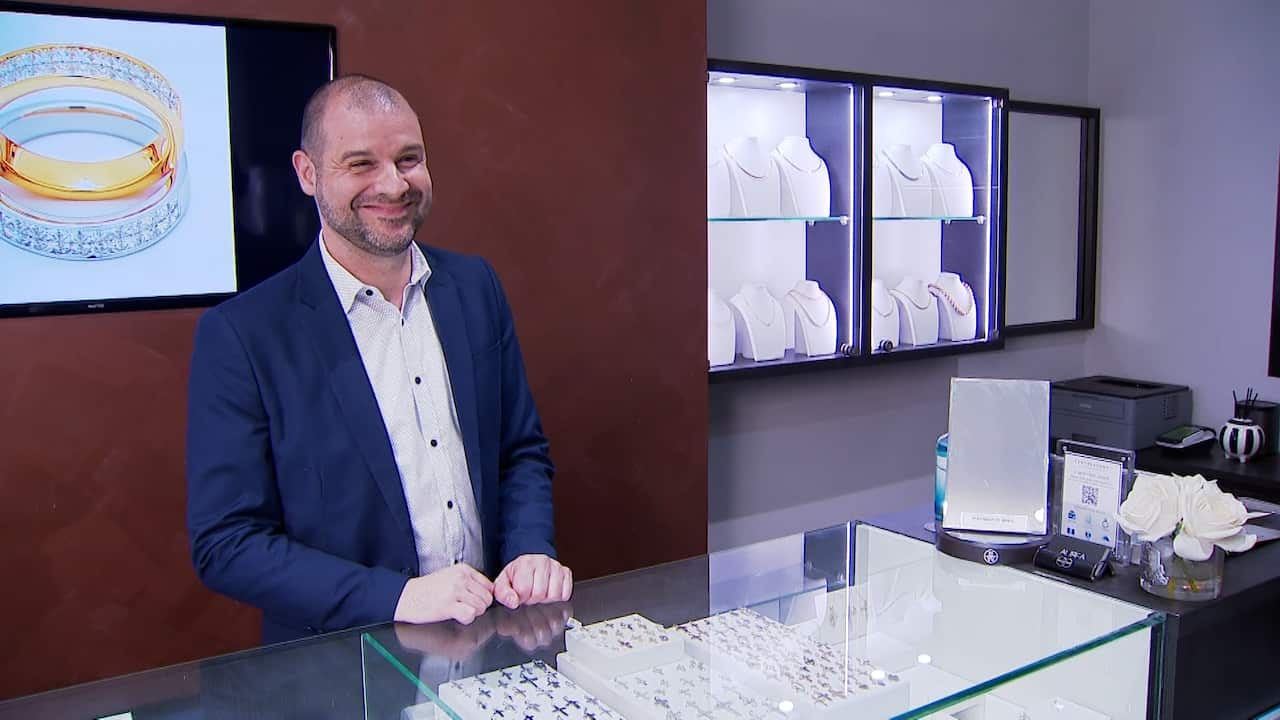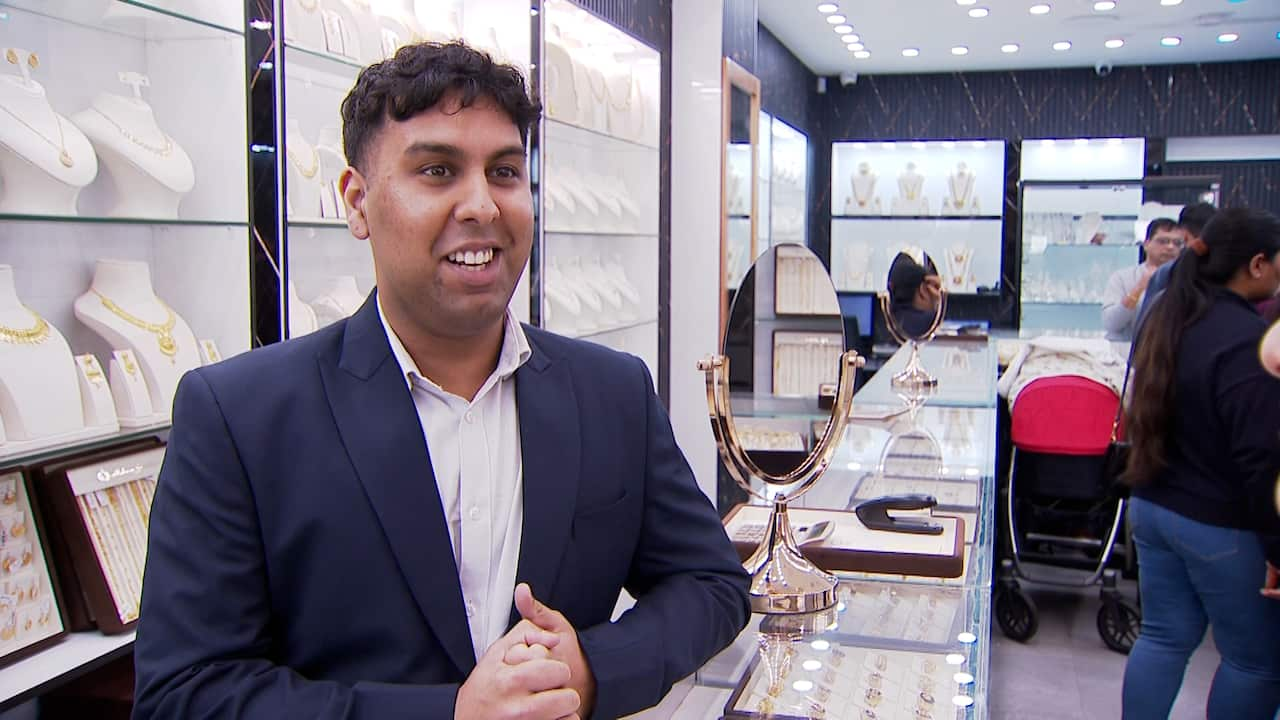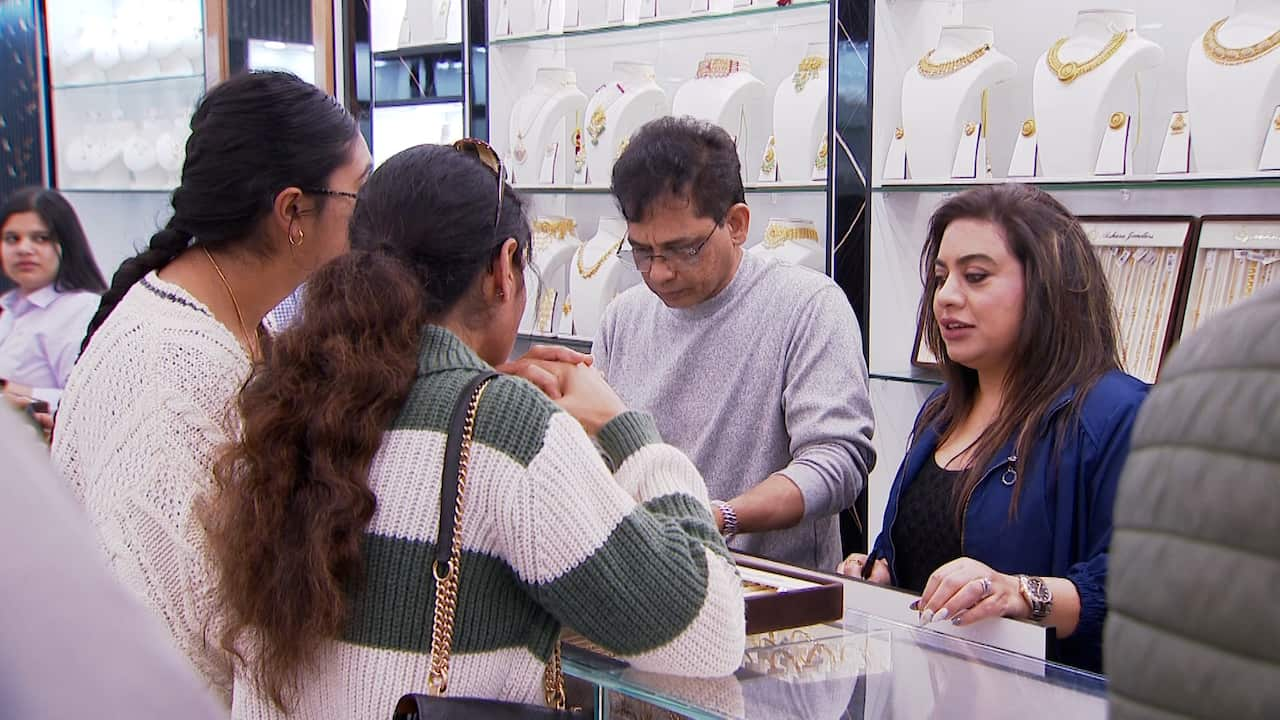Share this @internewscast.com
When selecting gifts for significant occasions like weddings or birthdays, gold jewelry remains a top pick across various cultures. However, with gold prices increasing by around 70 percent over the past five years, many individuals face a dilemma: whether to sell these items to manage financial needs or to preserve them for emotional reasons.

Danny Georgakopoulos says customers are now opting for lower carats of gold because of high prices. Source: SBS News
“Gold price has gone up. It’s gone up about 40 per cent in the last 12 months. In 2025, from January to June it’s gone up about 20 per cent. So it’s quite a big jump,” he says.
Jeweler Danny Georgakopoulos notes that there was once a strong preference for 18-carat gold, especially among older Italian and Greek women, who would take offense at being offered anything of lesser quality. “Suggesting anything less than 18-carat to them feels like an insult,” he shares with SBS News.
Nowadays, customers are opting for gold with lower caratage due to the significant price hikes in this precious metal. “This place is somewhat a hotspot for weddings and christenings, so I sell plenty of crosses, wedding bands, and engagement rings,” Georgakopoulos explains.
A rich history
The question, though, is why do humans in almost every part of the world love this shiny metal so much?
“And just with water, food, these assets have over time evolved to hold meaning for us.”
What’s behind gold’s price rise?
While demand for jewellery has dropped due to the price, it still retains strong cultural value in many parts of the world.
While gold jewelry temporarily fell out of favor in some Western countries, it’s making a comeback, though predominantly among those who can handle the high costs. In places like India, gold is deeply entwined with cultural traditions, representing heritage and financial security.
Jewellery for Diwali, special events
“In India, it’s customary to expect jewelry as part of marriage arrangements, whether for sons or daughters. Family and friends still uphold this expectation,” says an individual with connections to India.

About 90 per cent of Akshaj Sharma’s customers are from the Indian subcontinent. Source: SBS News
“So there is pressure, and it is obviously hurting the middle class more because they don’t have quite the give — the very poor have no options and the very rich have too many options.”
He got just under $10,000 for it.
Though the decision was emotionally taxing, oscillating for a few days, ultimately, the practicality of needing funds outweighed sentimentality. The jewelry, unworn in a drawer, was eventually sold to address financial necessities.
“They’re going through hardship and they make up some kind of excuse to not turn up.”
Gold recycling the way of the future
The World Gold Council says mine production accounts for the largest part of global gold supply — typically, 75 per cent each year with the shortfall made up from recycling.

Amid the cost of living crisis, many are opting to sell heirloom gold jewellery. Source: SBS News
Earthworks — a United States environmental group — says there are more than 2,000 major mining companies in the world in addition to countless small artisinal mining sites.










